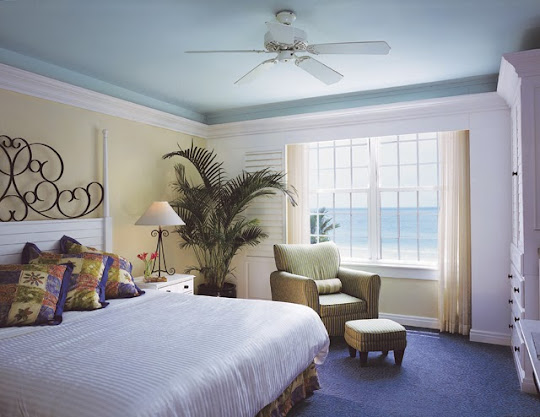
I have a thing for fine hotels. Honestly, in this day and age, I don't know why more people don't live in them.
I mean, you get to live in luxury, have fresh sheets and towels brought to you regularly by a maid who comes in and vacuums and cleans your room. Depending on where you stay, there's free breakfasts, there's fine room-service dinners they'll bring right up to your door, there's guys to carry your luggage up and down, there's guys who'll go park your car for you, there's security guards and receptionists at the front desk who'll receive/deliver messages for you and give you wake-up calls, etc.
Most of all, there's efficiency and simplicity, and that's something we all need in spades.
I know, I know, you're saying, "Dude, I can't afford to live in a hotel," but how you livin' now? When you live in a hotel you're paying no electric bill, no water bill, no sewer bill, no gas bill, no cable bill, no internet bill, no phone bill (unless you're stuck in a smartphone plan - sucker!) and you don't have to pay out to the plumber, the roofer, the yard man, the pool guy, etc.
This, then, is why I could easily see retiring someday in the antiquated confines of the old Don CeSar Hotel (aka "The Pink Palace") in south St. Pete's Beach, just a stone's throw from Pass-a-Grille. Rare is the visit to Florida where I don't pop in here for a spell to feed my muse and commisserate with the ghosts of the past.
A fella named Thomas Rowe had a dream of building a Moorish-looking pink castle, and it being the days when someone could just think something up and do it, he did it. Work began in 1924 and it was completed in late 1927, with the official grand opening gala held on January 16, 1928. In the years since, everyone from Presidents to gangsters have slept here - Franklin D. Roosevelt, Bill Clinton, Clarence Darrow, Al Capone, and F. Scott Fitzgerald, who always knew the best hotels to haunt (he and Capone both adored Louisville's Seelbach Hotel.)
Rowe dubbed his dream domicile after Don César de Bazan, the hero in the opera Maritana. The restaurant at the resort is also named Maritana, so evidently Rowe was seriously into this opera. Remind me to check it out (or better yet, put it on myself sometime.)
So who the heck was Don César de Bazan? As a character, he first appeared in the Victor Hugo play Ruy Blas in 1838. For some reason, this side character became the star of a play titled Don César de Bazan by Adolphe d'Ennery and in a different production (also called Don César de Bazan) by Jules Massenet. And finally, from that opera came another, grander one called Maritana which then became the standard-bearer for the Don Cesar story. But why all this fixation about this Don Cesar guy? Was he a real person? How did this side-character from a failed Victor Hugo play end up having such a lasting reverberation through the 19th and early 20th centuries? It's like if a whole theatrical cult of Mercutio had splintered off into a life of its own - which maybe, some say, Shakespeare in fact set into motion by pinching him from The Tragical History of Romeus and Juliet.
And why does the hotel spell it "Don CeSar" instead of "Don César"? I dunno. I don't ask questions. I just smile and sip my tea.
When I stay here, I always think I'm going to get a lot of writing done on whatever novel I'm working on at the moment. That's usually not what happens. Instead, I drink lots of rum and stare at the sea oats waving by the ocean and hear little voices whispering in my ears with new ideas for other stuff I should write instead. Oh well. Whatever works.








No comments:
Post a Comment